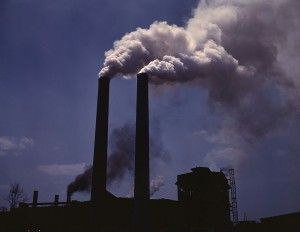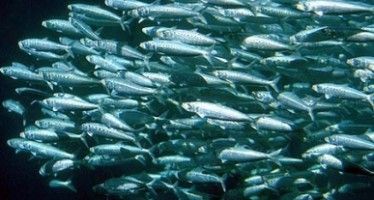AB 245 would shine light on cap-and-trade auctions
By Warren Duffy
AB 245 is a bill that would reverse the secrecy that currently exists around the cap-and-trade auctions of the California Air Resources Board. As CalWatchdog.com reported last August, the Legislature “nixed” proposals to mandate accountability under Sections 11120-11132 of the California government code, which is the Bagley Keene Open Meeting Act.
AB 245 is sponsored by Assembly Member Shannon Grove of Bakersfield. The bill would open all carbon auctions to public scrutiny.
Europe’s problems with cap and trade show why public scrutiny is necessary.
California’s February cap-and-trade carbon auction by CARB went off as planned. But a similar auction in Europe was canceled for the first time in eight years as the reserve price was not met.
The EU’s historic cancellation of a carbon-credit auction is the result of years of a sluggish business economy. Many businesses were forced to curtail production because of the economic turndown and that, in turn, dropped the use of fuel and the production of polluting carbon exhausts. That put a damper on the need for businesses to buy carbon credits. And the floor literally fell out from under the cap-and-trade market.
In 2012 alone, the price per carbon credit dropped 49 percent, one half of its asking price. In the last five years, the price has plummeted by an astounding 90 percent and carbon credits are now virtually worthless pieces of paper. Such are the vagaries of the auctioning of non-tangible assets.
Credit slips
For example, when commodities like wheat, corn or oil are traded, there is a supply of tangible assets investors purchase. Even if the price drops, you still hold the asset.
In the non-tangible world of “carbon,” only credit slips are being traded. They are of no value unless there is a strong demand by someone having scarce supplies. For five straight years, that has not been the case and businesses have a glut of unused carbon credits. As more credits came onto the market with each new auction, the price per unit started to free fall, causing this week’s auction cancellation.
Carbon credit auctions are the central ingredient in both the EU’s and California’s cap-and-trade systems.
California held its first two quarterly auctions in the state’s history in Nov. 2012 and Feb. 2013. Though response to those auctions has been mixed, the results have been generally disappointing. Revenue figures from both auctions vary. But when combining the income from both, they fall extremely short of lofty goals of pre-auction predictions and the dollar figure Gov. Jerry Brown plugged into his fiscal 2012-13 budget. Together, the two auctions were supposed to net the state $2 billion; but they raised a bit less than $500 million, combined.
Last fall, the Legislature squabbled with the Governor over how an estimated $1 billion of revenue from each auction would be spent. While legislators insisted on overseeing the expenditures of the “windfall” profits, the governor expected at least a sliver of the green pie revenues to help fund his California High-Speed Rail Authority project in the Central Valley.
Depending on a wide range of variables, California could potentially fall into the same glut-of-market trap on carbon credits. If, for example, the state continues to auction carbon credits four times each year, the supply could overwhelm the demand and drive prices below the floor price set. That price is set by CARB. How the state might implement reforms to the auction process to avert an auction cancellation has yet to be discussed publicly by CARB officials. But then, CARB is known for not discussing much about cap-and-trade carbon auctions publicly.
Alarms
However, the results from the first two CARB auctions contain a few cautionary alarms for state regulators and legislators. While CARB officials deemed the first auction a glowing success, later revelations showed that one of the bidders, Edison International, mistakenly purchased more than 70 percent of all of the credits CARB auctioned. The asking price set by CARB was $10 a ton and the top price bid at auction was only about 11 cents over the floor price. No one has offered any analysis of how successful the auction would have been had Edison not made their astoundingly large “blunder.”
The second auction proved a shade more successful from both revenue and operational viewpoints. At least that’s the analysis of the auction according to CARB. The cap-and-trade auctions are veiled in strict secrecy and no information is available to anyone, not even participants. Bidders don’t know whom they are bidding against and prices are not publicized to other bidders. Participants simply submit a bid to CARB, bids are accepted in order, with the highest price getting first choice. That continues until all the credits are sold.
To protect their veil of secrecy, CARB has openly threatened businesses that might be tempted to reveal how much they paid for credits or how many they purchased. By not complying to these demands by CARB, a business would be banished from future auctions.
AB 245, if enacted, would cut through the smog to let citizens see what’s really going on.
Warren Duffy is an award-winning talk show host, columnist and author, with an Honorary Doctorate in Theology from the California Pacific School of Theology. Check out his new book, “The Green Tsunami: The Tidal Wave of Eco-Babble Drowning Us All.”
On Monday, April 1 at 9:15 a.m. Pacific Time, he will be appearing on the Dennis Miller show to discuss the book. Listen here.
Related Articles
Reality show hides California reality
Nov. 23, 2012 By Joseph Perkins My wife turned me on to a new reality show, “Start-Ups: Silicon Valley.” It airs
Skyscraper Goes Up in 15 Days
MARCH 16, 2012 Fifteen days. That’s how long it took developer Broad Sustainable Building to complete construction of a 30-story
CA sardine fishing ban: Did regulators wait too long?
The federal government’s emergency moratorium on sardine fishing off the California and Pacific Northeast coast took effect July 1, in





